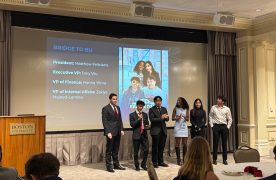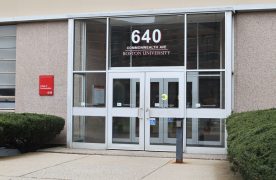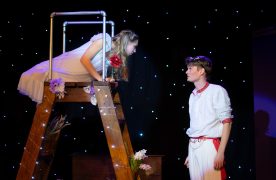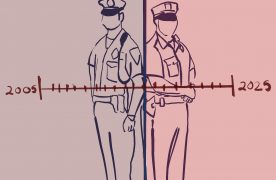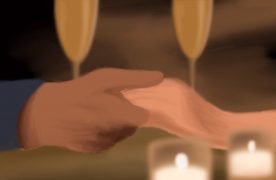For more than a decade, high school students from across the country have flocked to Commonwealth Avenue — chasing stories, snapping photos and getting a taste of what being a journalist is really like at Boston University’s Summer Journalism Academy.

Though applications for the program were released in December and students were accepted, both the online and on-campus programs were canceled in February.
Burton Glass, director of marketing and communications at the College of Communication, cited staffing and student housing issues at the forefront of the cancellation.
Due to renovations in Warren Towers, where approximately 60 attendees would typically reside throughout the three-week program, students would have to reside at “the far end of campus, away from the buildings,” which Burton said they weren’t keen on.
“We’re all about educating future journalists,” Glass said. “But as effort and resources get pinched, it’s not as core as maybe spending the energy on the college students and some of the other programs.”
Instructors at the academy expressed disappointment at the cancellation.
Jan Brogan, who would have marked her tenth year teaching at the program this summer, said it gives students “confidence” in themselves and their writing ability — regardless of their interest in pursuing a journalism career.
Brogan said working with students at the academy gives her “hope in the future” of journalism, especially since the program mimics a real newspaper.
“It’s sad because it’s also in the context of [how] we see so much of journalism dying,” Brogan said. “I hate to see a journalism program die.”
Stephanie Schorow, an instructor in the Department of Mass Communications, Advertising and Public Relations at COM who taught at the academy for two years, said it is “heartening” to see students interested in the “tough aspects” of journalism — which are not “sugar-coated” at the academy.
“They get a good look at what journalism is all about, and many of them come away with the real love of the craft,” she said.
Schorow said she thinks it’s a great idea to involve students in journalism at a young age.
“Not everybody in the program is going to go on to journalism, and not every person who goes on to journalism will stay in journalism,” Schorow said. “But knowing what a free press means will affect whatever career they have in the future.”
Both Brogan and Schorow emphasized the value of having experienced instructors teaching at the academy.
“It’s taught by not by graduate students or not even by people who’ve been out of the field for a long time, but people who are actually in the field,” Schorow said.
Pacinthe Mattar, an independent journalist and instructor for the online Summer Journalism Academy, said the loss of the program feels “seismic.”
Mattar said she received the “shocking” news of the cancellation following a prior meeting with Glass confirming the dates of the program.
“We were locked in, and then all of a sudden, there’s this ‘tough news’ email on the Friday,” Mattar said.
Mattar treasures the academy, as it gives her the opportunity to work with the next generation of journalists, and watch their “metamorphosis” from tentative to ambitious.
Glass said the program may return in 2026.
For Mattar, the program’s impact went beyond teaching journalism — it built a sense of camaraderie among students, she said. She described a showcase she hosted at the end of each online session, where students highlighted their own stories and praised their peers for their work.
“I have a really special place in my heart for student journalists, because I feel like student journalists have been uncorrupted by market sources and mainstream media,” Mattar said. “They have courage, they have moral clarity, they have hunger.”






